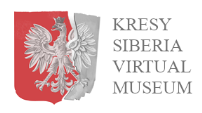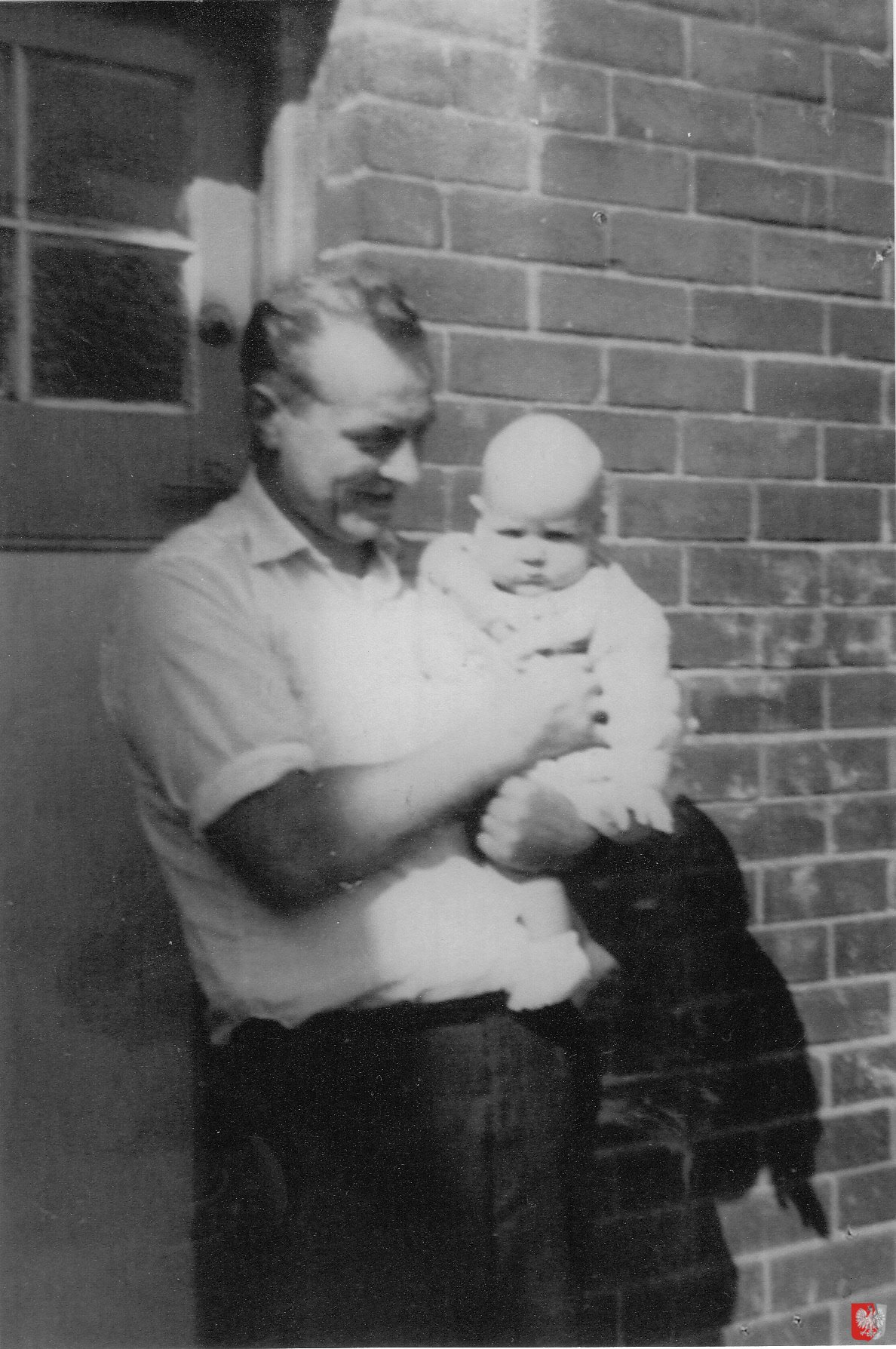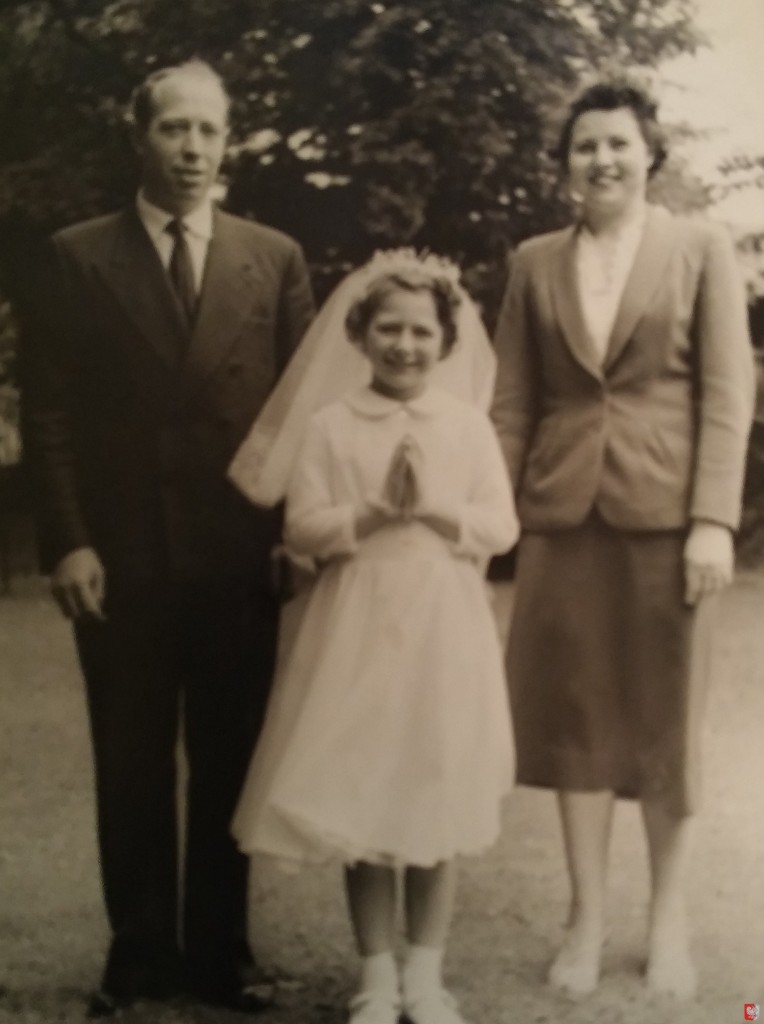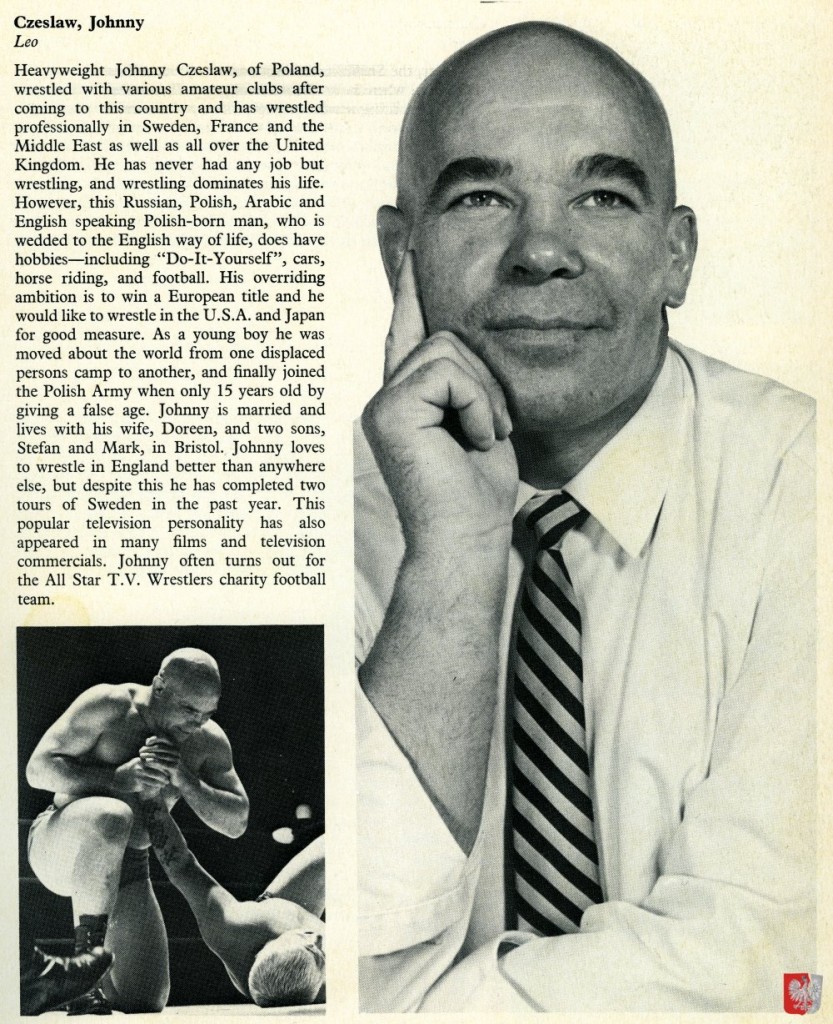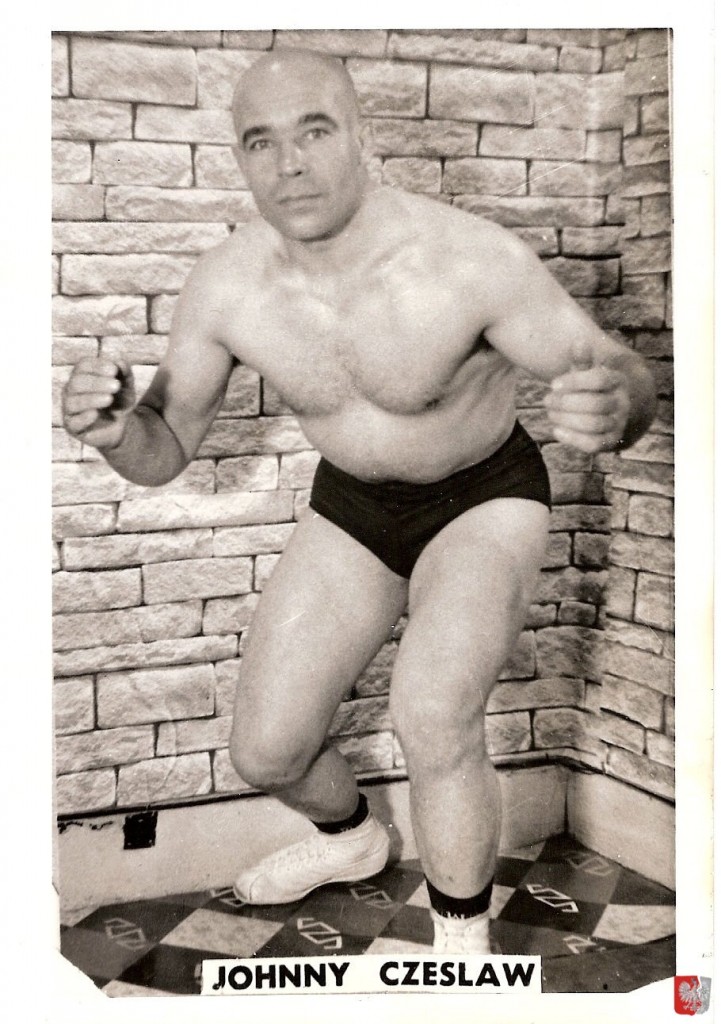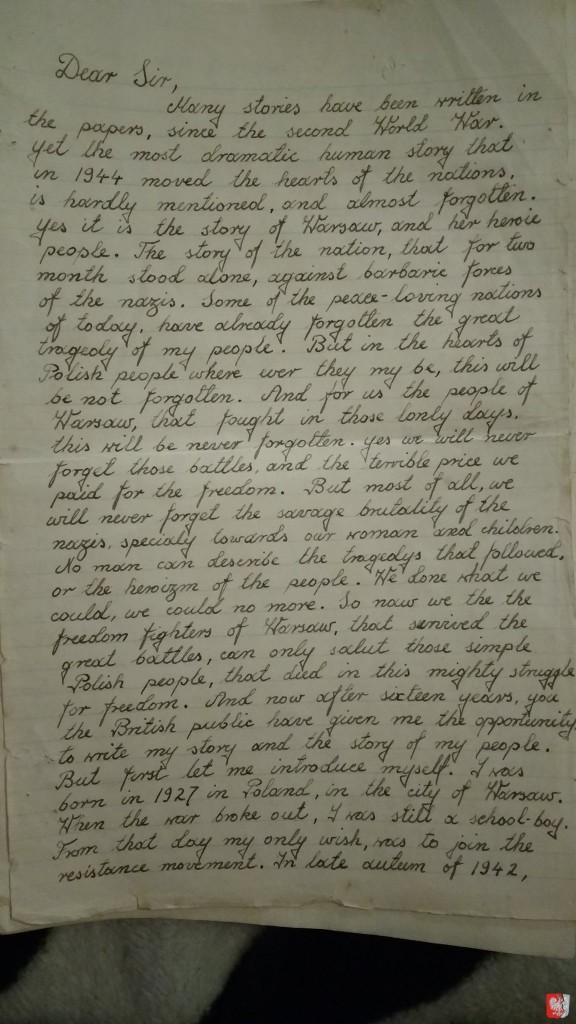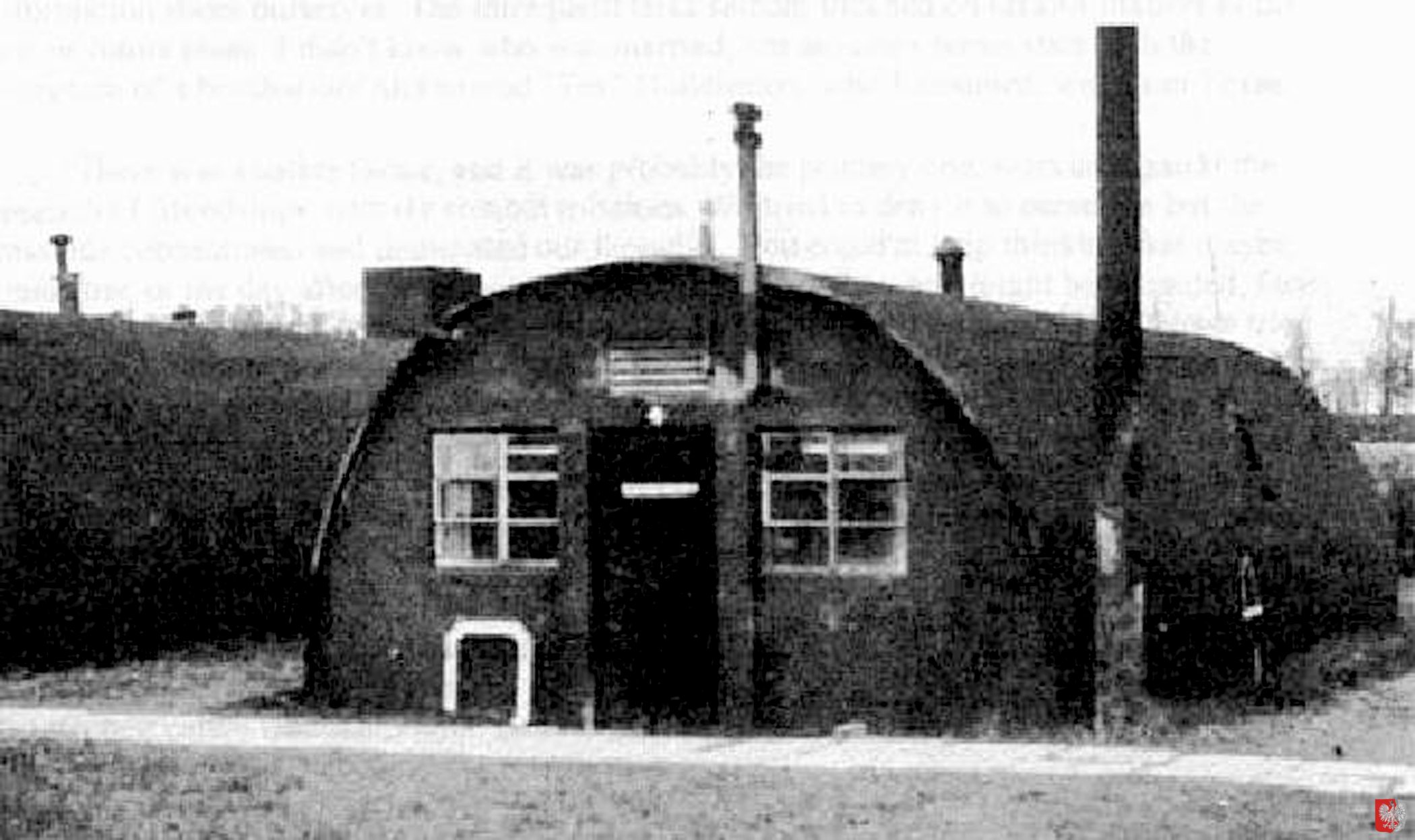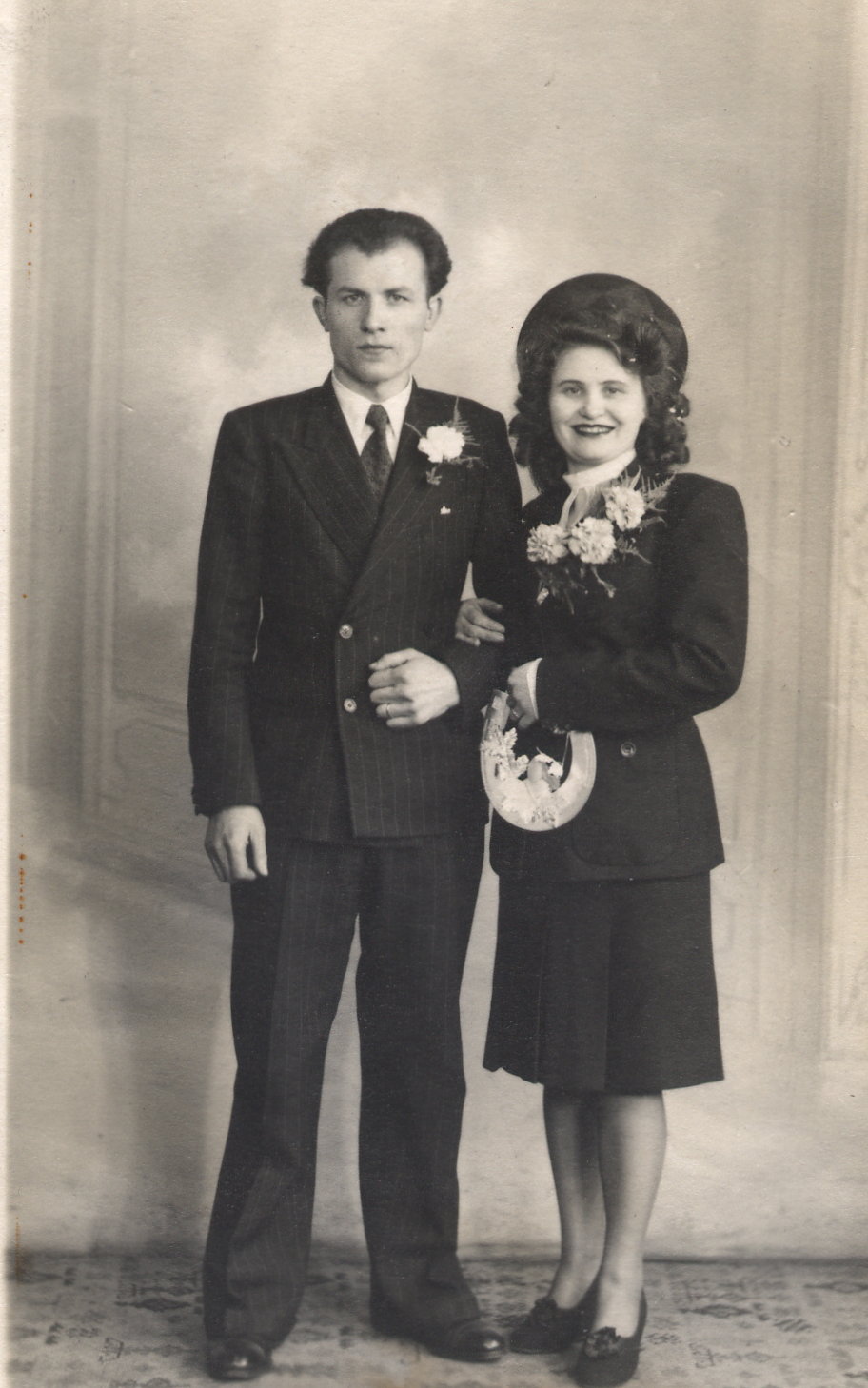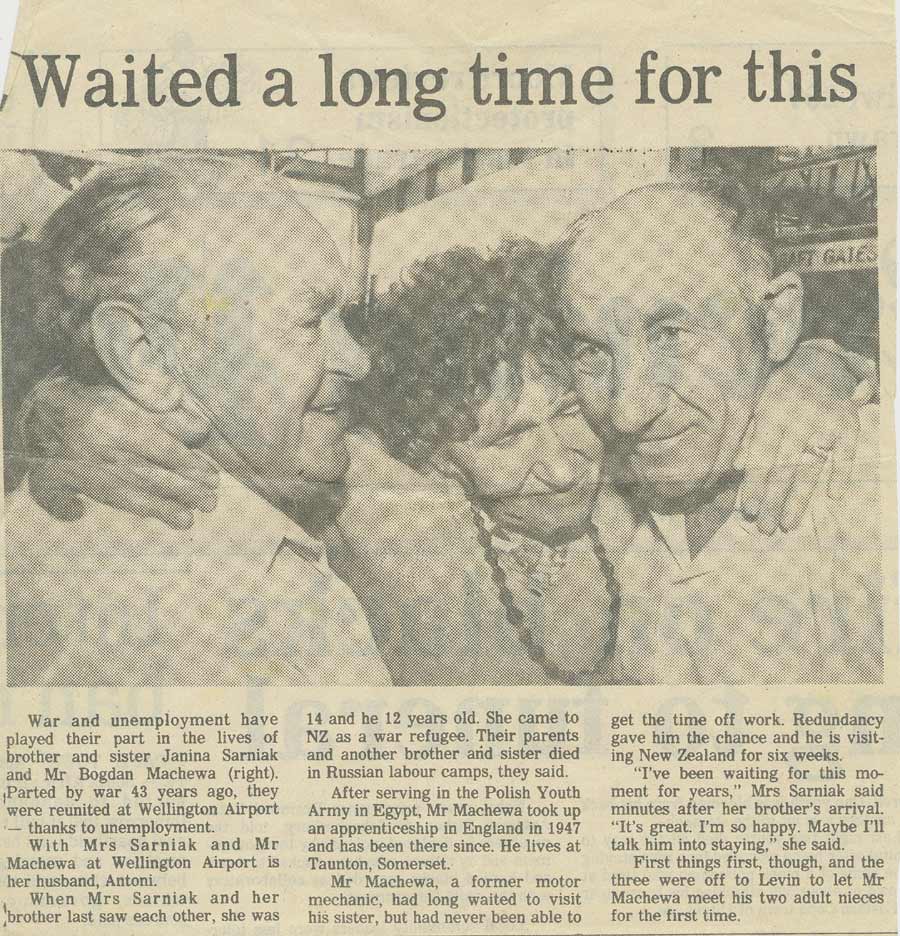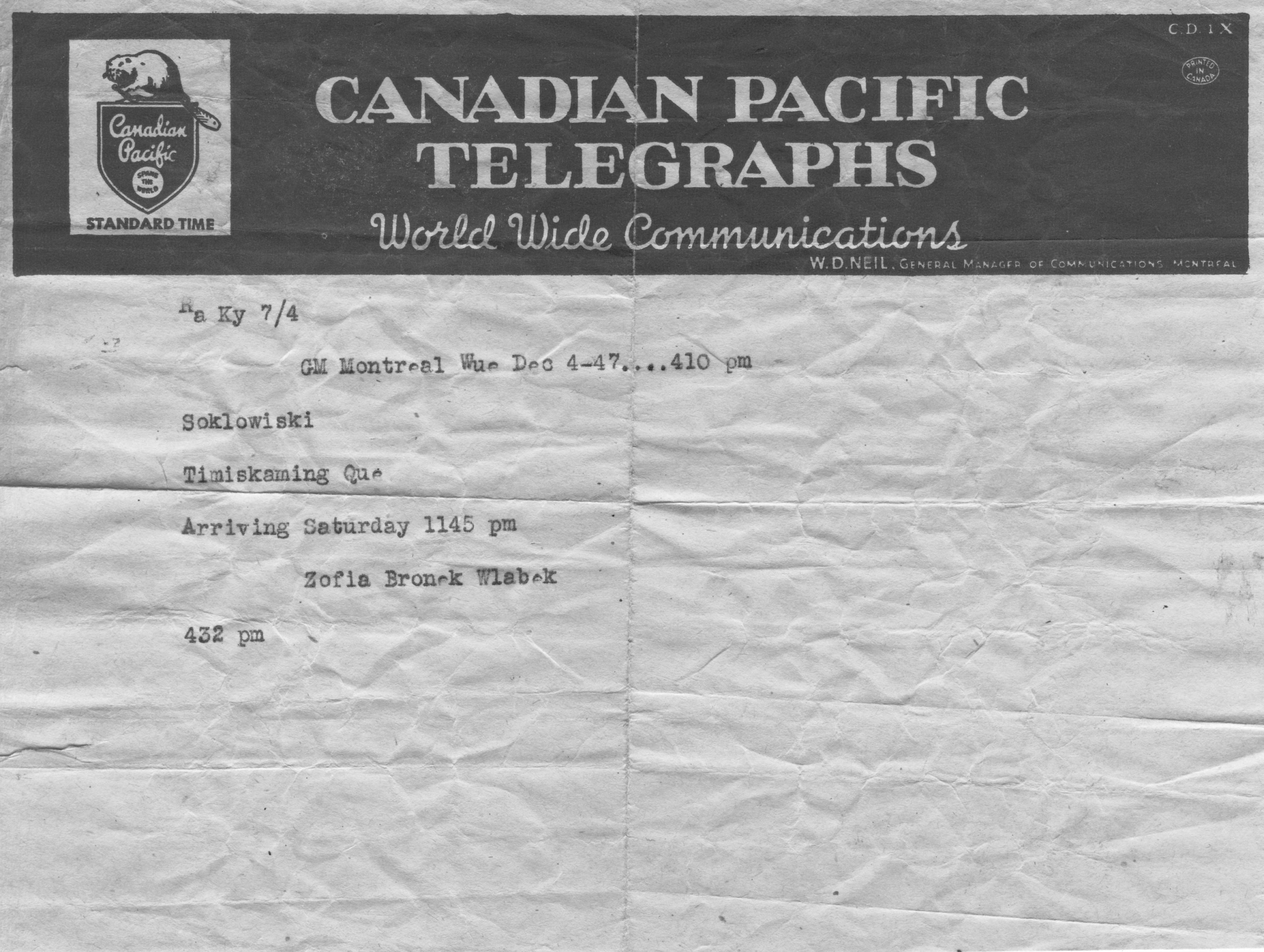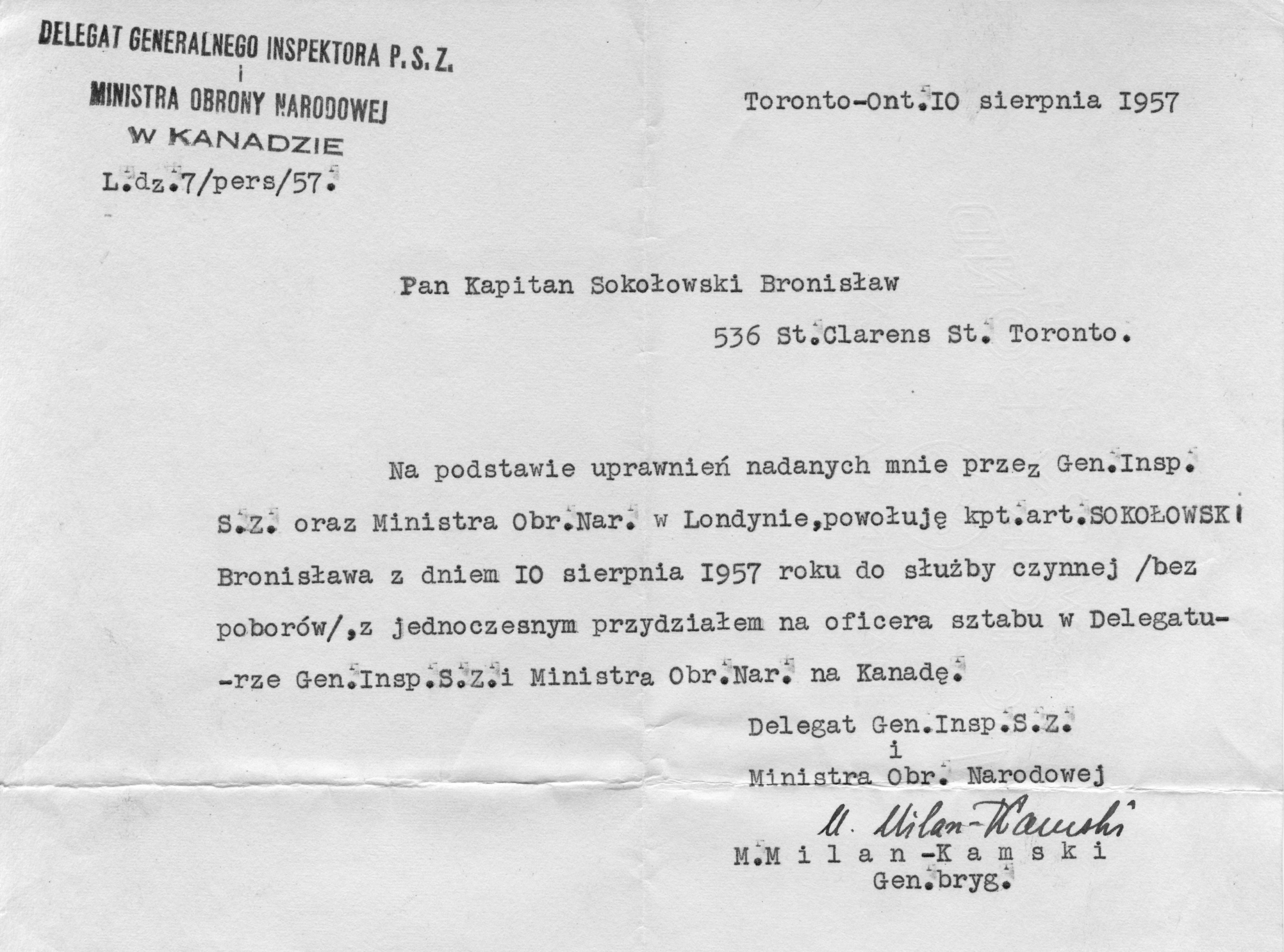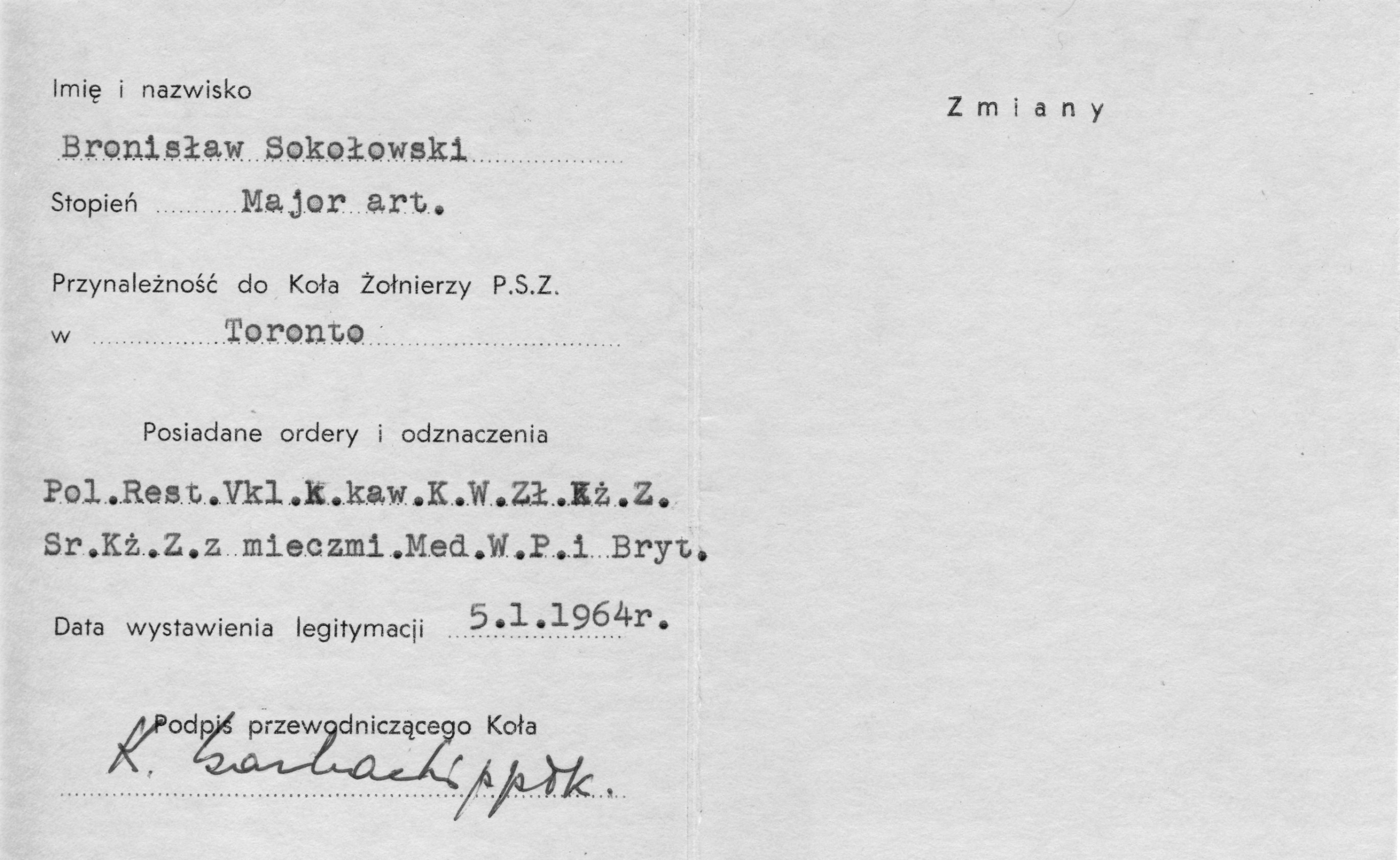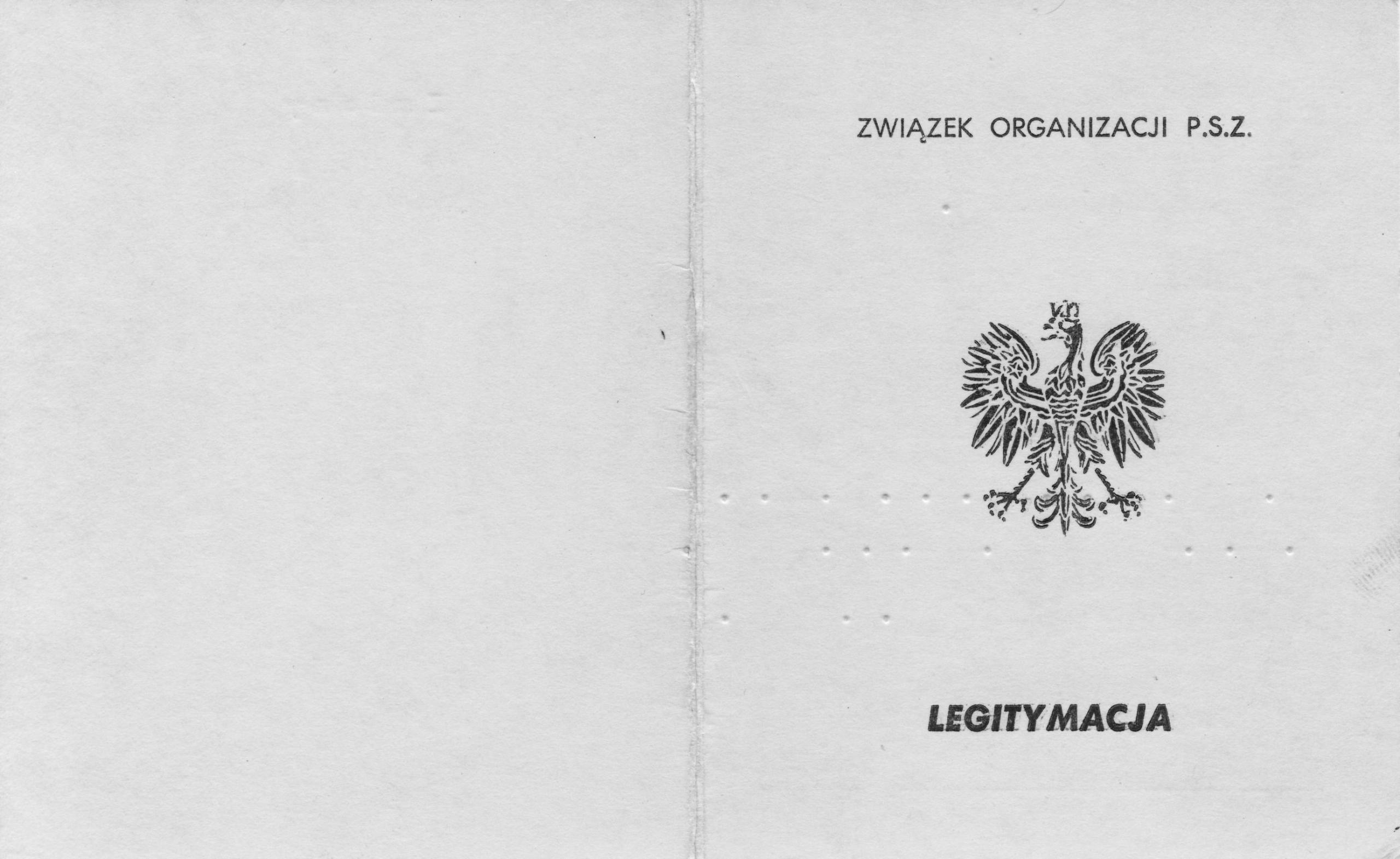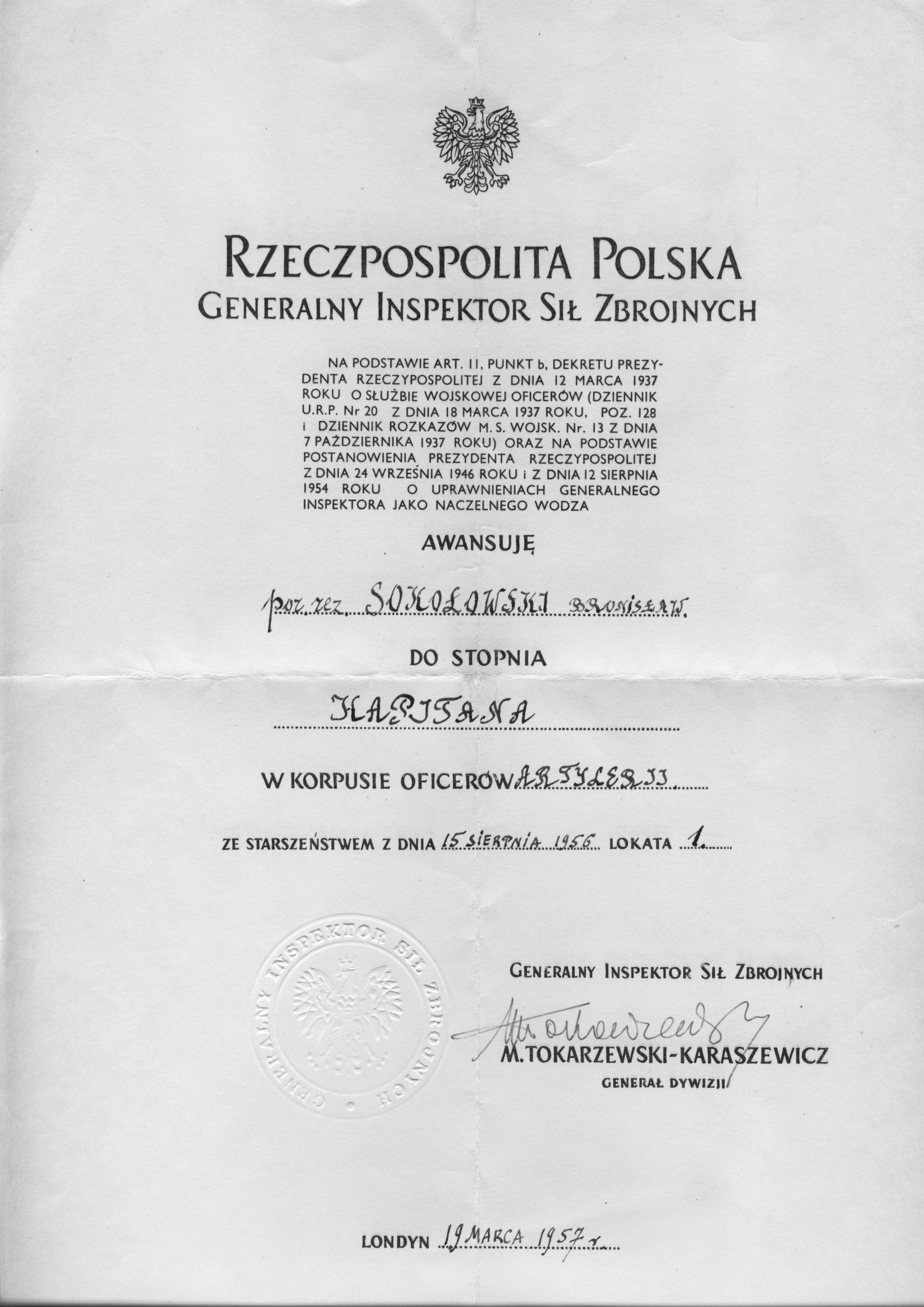Gallery – Forever in the West
Antoni with his son in the UK
Antoni with his son in the UK
Brian Mansor
After WWII
United Kingdom
Wath upon Dearne, South Yorkshire
Zigmunt Minkler
With daughter Janice Minkler and wife Dorothy Minkler (Nee: Bragg)
Richard Minkler
After WWII
United Kingdom
Article about Czeslaw Minkler, Wrestler in the UK
Article about Czeslaw Minkler, Wrestler in the UK
Richard Minkler
After WWII
United Kingdom
Czeslaw Minkler
Czeslaw Minkler was a wrestler in the UK
Richard Minkler
After WWII
United Kingdom
Biography
Biography
V Remiszewska
After WWII
United Kingdom
Bridgewater, Somerset
Jerzy Antoni Augustyn
My father Jerzy - perhaps in India or as a new citizen in USA (circa 1948).
Danielle Augustyn Meyer
After WWII
Nissan Hut in UK
Nissan Hut in UK
After WWII
United Kingdom
Jan Starzak, wedding day, 1949
Jan and Helena Starzak, on their Wedding Day. Ipswich, Suffolk, UK. 27/6/1949.
Krys Dobrzanski
After WWII
United Kingdom
Ipswich
Polish Air Force in the UK
Family reunion after 43 years
Article about the reunion of Janina and Bogdan, who visited from England, in the "Evening Post" of Wellington, NZ. Dated 15 April 1985.
Lonia Sarniak
After WWII
New Zealand
Wellington
Demobilization certificate (back_bottom half)
Demobilization certificate (back_bottom half)
Henry Sokolowski
After WWII
Poland
Polish Resettlement Corps
Aquitania List of personnel_part 3
Aquitania List of personnel_part 3
Henry Sokolowski
After WWII
Poland
Southampton
Demobilization certificate (back_top half)
Demobilization certificate (back_top half)
Henry Sokolowski
After WWII
Poland
Polish Resettlement Corps
Berthing Card for Transport nr 122 on board Aquitania
Berthing Card for Transport nr 122 on board Aquitania
Henry Sokolowski
After WWII
United Kingdom
Southampton
Polish Resettlement Corps
ID Card for commemorative badges 1 of 2
ID Card for commemorative badges 1 of 2
Henry Sokolowski
After WWII
Poland
Polish 2nd Corps in Italy (Gen. Anders)
Dining Room seating card for Transport nr 122 on board Aquitania
Dining Room seating card for Transport nr 122 on board Aquitania
Henry Sokolowski
After WWII
United Kingdom
Southampton
Aquitania additional list of family members
Aquitania additional list of family members
Henry Sokolowski
After WWII
Poland
Southampton
ID Card for commemorative badges 2 of 2
ID Card for commemorative badges 2 of 2
Henry Sokolowski
After WWII
Poland
Polish 2nd Corps in Italy (Gen. Anders)
Telegram to Father in Temiscaming
Zofia, Bronek and Wladek had emigrated to Canada from England. Now in Montreal, they sent a message to their father in Temiscaming, Quebec, of their impending arrival (by train). Father Wojciech (George) had been in Temiscaming since 1926, working at the local pulp and paper mill and sending money to the family in Poland. They had not seen each other since 1926.
Henry Sokolowski
After WWII
Canada
Montreal
Polskie Siły Zbrojne letter to Canadian branch
Polskie Siły Zbrojne letter to Canadian branch
Henry Sokolowski
After WWII
Israel
Toronto
Polish 2nd Corps in Italy (Gen. Anders)
Telegram to B. Sokolowski
A telegram to Bronek as he left for Canada, from his English friends
Henry Sokolowski
After WWII
United Kingdom
Southampton
Letter of reference
Letter of reference
Henry Sokolowski
After WWII
Poland
Cannon Hall Camp
Polish Armed Forces Association_Toronto Branch
Polish Armed Forces Association_Toronto Branch
Henry Sokolowski
After WWII
Canada
Toronto
Polish 2nd Corps in Italy (Gen. Anders)
Telegram to B. Sokolowski (envelope – front)
Telegram to B. Sokolowski (envelope – front)
Henry Sokolowski
After WWII
Canada
Timiscaming, Quebec
Polish Armed Forces Association_Toronto Branch
Polish Armed Forces Association_Toronto Branch
Henry Sokolowski
After WWII
Canada
Toronto
Polish 2nd Corps in Italy (Gen. Anders)
Telegram to B. Sokolowski – (envelope – back)
Telegram to B. Sokolowski – (envelope – back)
Henry Sokolowski
After WWII
Canada
Timiscaming, Quebec
Letter
Letter
Henry Sokolowski
After WWII
Canada
Ottawa
Notice of examination meeting
Notice of examination meeting
Henry Sokolowski
Canada
Toronto
Polish 2nd Corps in Italy (Gen. Anders)
posiolek Gorna Kamionka
posiolek Gorna Kamionka
Henry Sokolowski
During WWII
Poland
Telegram to send money immediately
George's wife Anna, and daughter Maria Skiba, sailed from Mombasa aboard the SS Mason Lykes (formerly an American military cargo and assault troop ship which saw service in the Pacific under its original name, USS Trego).
Henry Sokolowski
After WWII
Canada
Timiscaming, Quebec
Certificate of advance to captain (artillery)
Certificate of advance of Lt (Reserves) Sokolowski to Captain of the artillery, effective 15 August 1955, signed by General Tokarzewski-Karaszewicz, of the Polish Armed Forces (in exile), at London, 19 March 1957
Henry Sokolowski
After WWII
United Kingdom
London
Polish 2nd Corps in Italy (Gen. Anders)
